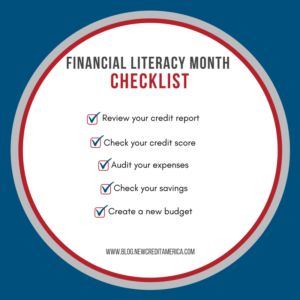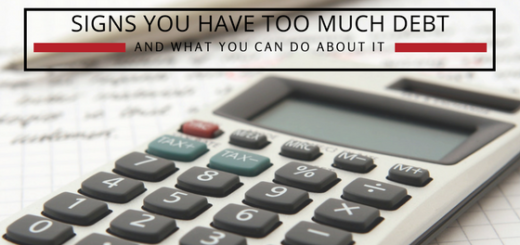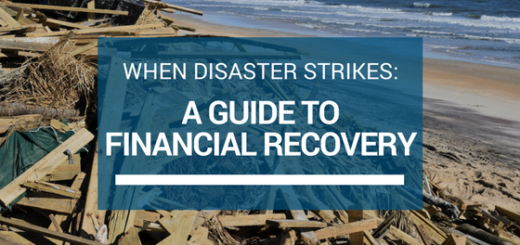5 Things You Should Do For Financial Literacy Month
 April is Financial Literacy Month. At New Credit America, financial literacy is a topic we care deeply about. To us, financial literacy means feeling empowered to make informed decisions about your finances. It means having a clear understanding of the state of your financial health, as well as ways to improve it. Though we could talk financial literacy all year long, we think Financial Literacy Month is the perfect time to conduct a quick and thorough checkup of your finances. To help you start, we’ve created this helpful checklist of everything you should do to ensure your finances are in top shape.
April is Financial Literacy Month. At New Credit America, financial literacy is a topic we care deeply about. To us, financial literacy means feeling empowered to make informed decisions about your finances. It means having a clear understanding of the state of your financial health, as well as ways to improve it. Though we could talk financial literacy all year long, we think Financial Literacy Month is the perfect time to conduct a quick and thorough checkup of your finances. To help you start, we’ve created this helpful checklist of everything you should do to ensure your finances are in top shape.
Review your credit report
Taking a thorough look at your credit report is the perfect place to start. Your credit report is a key indicator of the state of your financial well-being. It details your all your credit activity including payment history, legal activity (bankruptcies, liens, etc.), and current accounts, and it may tell you if you’ve been the victim of identity theft. By checking your credit report, you can identify any areas of concern as well as any necessary corrective actions. For example, you may see errors to dispute or payments you’ve been behind on. The best part of this checklist item is it’s free! You can request a free copy of your credit report from the three major credit bureaus every 12 months here.
Check your credit score
After you’ve reviewed your credit report, you should check your credit score. While your credit report gives you a full look at your overall credit health, your credit score provides a numerical value showing how good or poor your credit health is. Knowing your credit score is extremely important because it measures your credit risk based on the information in your credit report. The higher your score, the lower perceived risk you have to a lender. Once you know where you stand, you can make informed choices that improve or maintain your score. You can track changes in your score through free monitoring services like Credit Karma.
Do an audit of your expenses
Take this opportunity to adopt new (wallet-friendly) spending habits. Start by assessing your current spending habits compared to your income. Are you spending more money than you’re taking in each month? If so, it’s time to cut back on spending. Cutting back will give you more money to pay bills, contribute to a retirement account, pay down debts or contribute to a savings account. All of this will make you feel more in control of your situation (and that’s always a win!).
Next, examine your monthly bills. Be sure to include any credit cards or loans as it always helps to know your APR (annual percentage rate), what fees you may incur and their impact on your financial health. This well help you as you reshape your budget and assess your spending and saving habits.
Check your savings and start an emergency fund
If you face an unexpected financial crisis do you have the money you need to cover any unplanned expense or loss of income? If you don’t, you’re not alone. According to a recent survey, only 39% of Americans have enough savings to cover $1,000 emergency. Whether it’s a big medical bill, car accident or job loss, an emergency like this can derail your finances and create a cycle of debt. Look at what you have in savings and calculate how much you’re contributing to any type of savings right now. If you don’t have anything set aside, or it’s not enough to cover bills or an unplanned expense, now is a good time to start an emergency fund. Here are some ways to cut costs so you can start setting aside funds. Your future self will be eternally grateful!
Create a new budget
Now that you’ve done a full assessment financial health, take what you’ve learned and use to it to create a new budget. It’s likely during your assessment you developed some new financial goals. Maybe you want to improve your credit score or start saving money. Tailor your budget to meet those goals. You can use the audit you conducted to inform your decisions. A budget can help you feel in control and give you a blueprint for how much money you can spend each month. Here are some tips to build a budget that works for you.


